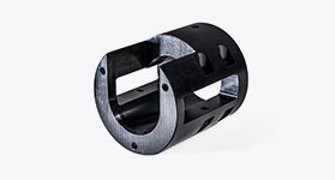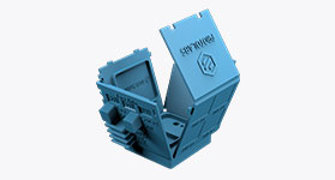
Choosing a contract manufacturing supplier for your company is a critical decision. Certainly from a production standpoint, making sure the supplier is reliable and efficient and can deliver on time and on budget are key elements to consider.
But beyond production factors, your firm’s credibility and reputation is also on the line, because “you’re handing over your company’s processes and production to another business,” said Ken Chess, COO of Chicago-based Fusion OEM, in a past blog post. “With your company’s reputation on the line, you need to be highly selective when choosing a contract manufacturer—and you need outside, objective validation that [the contractor’s] business is run effectively.”
That’s why partnering with suppliers that have ISO certification makes sense, because the certification provides independent validation and assures companies that suppliers are meeting verifiable standards. Indeed, in many industries, companies will only do business with certified suppliers because it gives companies confidence that suppliers are working to accepted standards and procedures.
“In the eyes of our customers, it is all about confidence,” said Kevin Ashton, senior quality manager at Protolabs, referring to those companies seeking out contract manufacturers. “In our case, our customers want to have confidence in Protolabs as a supplier that we can deliver good parts.”
What the Standards Cover
ISO standards are set by the International Organization for Standardization, a Geneva, Switzerland-based independent body, recognized worldwide, which develops voluntary quality standards that companies follow. These certifications show businesses that suppliers have met these stringent standards and can be assured that suppliers’ management systems are constantly assessed and improved.
At Protolabs, the Quality Management System (QMS) is designed to meet the requirements of ISO 9001: 2015 for the manufacturing of prototypes and low-volume production of injection-molded, machined, and 3D-printed parts. The scope of Protolabs’ QMS is wide ranging, Ashton said. Generally, it covers:
- Context of the Organization
- Company Leadership
- Planning
- Support
- Operation, including requirements management, supplier
![]() controls, production, and nonconformance control
controls, production, and nonconformance control - Performance Evaluation
- Improvement
Protolabs holds ISO 9001: 2015 certification, which is the most up-to-date set of standards. Accordingly, “our customers know that we have policies, procedures, processes, and systems in place that we adhere to and closely follow,” said Ashton. “And that system is focused on the customers and their requirements. That’s really the definition of quality: conformance to requirements.”
The wide scope of the QMS is designed to cover all aspects of Protolabs’ digital thread, said Ashton. “So, the quality system starts from the customer uploading a file onto our system, it includes the front-end customer service and order entry activity, all the way through manufacturing and into shipping.”
Continuous improvement is built into the system and the certifications, too. For example, ISO standards are usually upgraded every seven to 10 years (the last certification was ISO 9001: 2008), and then companies are audited typically on a three-year cycle, Ashton said. Plus, smaller, annual surveillance audits are also done. All of these audits are conducted by independent, third-party validation registrars. Protolabs contracts with Advantage International Registrar, which is accredited by ANAB, the ANSI-ASQ National Accreditation Board, a management systems certification body.
Beyond ISO 9001:2015, Protolabs also holds AS 9100 D certification for the production of metal components using additive (3D printing) technologies and machining for prototyping and low-volume production. AS 9100 D certification is an important prerequisite for suppliers doing business in the aerospace industry.
Globally, Protolabs holds various certifications in countries that are specific to those regions, including in the United Kingdom and Japan.
For more on quality initiatives at Protolabs, read the entire blog series, Part I, Part II, and Part III, on how digitalization ensures quality in manufacturing.







